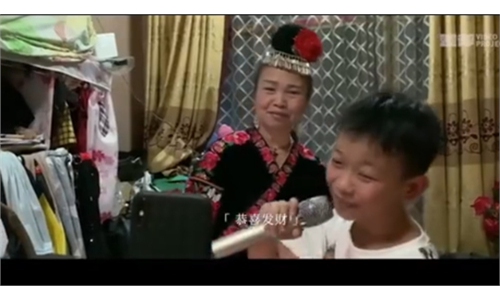ARTS / VIDEO GAMES
Chinese livestreamer’s outrageous urination video enrages netizens and earns him a ban from streaming platforms

The tourism department of Chengdu, Sichuan Province, launches a live streaming activity together with over 10 mainstream live streaming platforms and domestic media on September 29. Photo: VCG
A popular Chinese streamer has run into trouble after posting a video of himself urinating in a shampoo bottle and a kettle in a hotel room. The video quickly went viral, earning more than 100 million of views on Sina Weibo, but this resulted in infamy instead of fame as calls to boycott the streamer quickly followed.On Friday, the Online Live Performance (Streaming) Branch of the China Association of Performing Arts (CAPA) placed Mo, a popular streamer with more than 1 million followers, on its "warning list." In a statement, CAPA did not reveal how long Mo will be on the list, but did say it will be "long-term." Also, CAPA has placed other streamers on the same list for up to 24 months. If Mo's term lasts that long, it may likely spell the end to his streaming career.
His "room tour" video shows him deliberately urinating in a kettle and a shampoo bottle in the hotel and then bragging that no one would know what he had done. He then finished by spitting into the shampoo bottle.
Netizens were quick to criticize Mo's behavior on Sina Weibo, not only asking him for an apology, but also calling for the livestreamer to be banned.
"I used to like his content. I never imagined he was such a two-faced person with a twisted mind," posted one fan of Mo on Sina Weibo.
The livestreamer quickly apologized for his behavior online after his streaming account got banned on Friday. He confessed that his incentive was to try and gain "hype" for his channel by doing such things.
Netizens however grew even more agitated by his confession and start to band together to call for a boycott of "creative" content that treats immoral behavior as a key to popularity and wealth.
"I felt tremendously insulted when I read his apology. It sounds like he was assuming his fans are as uncivilized and as anti-social as him if he thought such wrong content could really attract people's attention. I'm horrified by these livestreamers' sick mentality because it can create social conflict," Yao, an activist against livesteaming culture told the Global Times on Monday.
"Not saying I support his behavior, but as a livestreamer as well, we all know how bold actions or a one-and-only move can make oneself rich and famous overnight. This career is like gambling…," Pang Ding, a fellow livestreamer, told the Global Times on Monday.
Though some people do see today's online culture as bringing in some fun craziness that widens people's eyes a little bit, the majority of people are still concerned about unhealthy livestreaming content and believe that changing it is a collaborative task that will not only involve responsible netizens, but also strict government regulation of related platforms.
"Like a stigmatized celebrity, it will be extremely tough for him to start again after he returns online. He will always be remembered for this and will have difficulty finding agents to promote him again," Tu, a PR expert who works with internet celebrities in Chengdu, Sichuan Province told the Global Times on Monday.



